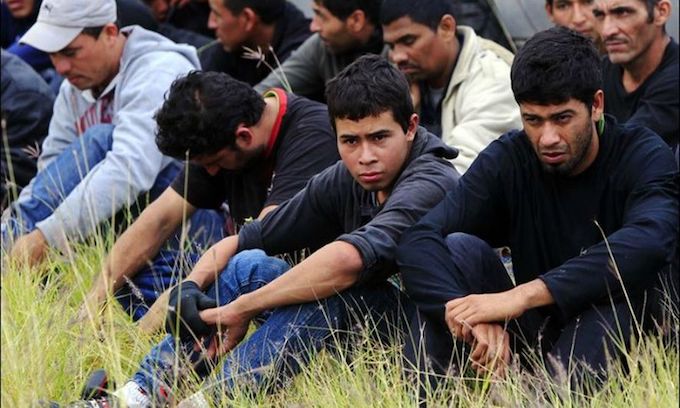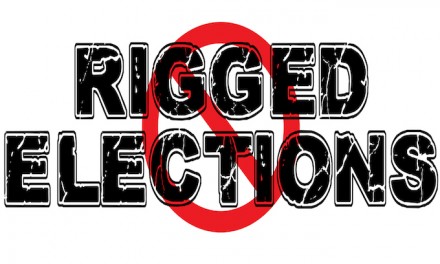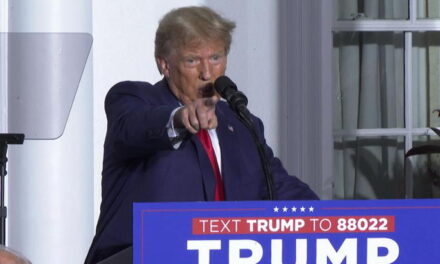Immigrant-rights activists are on a winning streak against the Trump administration in the deserts of Arizona — and they have a 1990s-era religious freedom law to thank for it.
In two cases in recent months, activists who left water for illegal immigrants escaped punishment after judges ruled they were motivated by their religious beliefs, and so they were shielded by the Religious Freedom Restoration Act.
It’s the same law that conservative businesses used to defeat the all-encompassing Obamacare contraceptive mandate, and that Sikhs used to win the right to wear beards and religious head coverings while serving in the military.
Yet RFRA is getting a new workout on the border, where it’s being used to protect those who want to ease illegal immigrants’ journey into the U.S.
The most recent ruling came early this month when U.S. District Judge Rosemary Márquez tossed convictions of four activists from No More Deaths, or No Mas Muertes, who’d been found guilty of violating federal rules by leaving jugs of water and cans of beans on Cabeza Prieta National Wildlife Refuge, perhaps the most barren part of the U.S.-Mexico border.
No More Deaths is a ministry of the Unitarian Universalist Church of Tucson, and the activists said rendering aid is a fundamental practice of their faith. The judge agreed, and said under RFRA that put the burden on the government to justify its prosecution — a burden it failed.
Everyone from religious freedom lawyers to anti-Trump immigration activists cheered the ruling.
“This was a foolish prosecution. Giving water to those who thirst is not a crime,” tweeted Luke Goodrich, a lawyer at Becket, a religious liberty law firm.
RFRA was passed by Congress and signed by President Clinton after the Supreme Court had ruled against a Native American who had smoked peyote, a hallucinogen, as part of his religious practices. RFRA said that if someone was following a sincerely held religious belief, then government had to attempt to make accommodations and must find the least-restrictive method of achieving its goals.
“That’s what makes RFRA so powerful,” said Robert W. Tuttle, a professor specializing in law and religion at George Washington University. “The burden shifts, once the activists have shown they have a sincere religious believe in performing this activity and that exercise would be substantially burdened.”
The most famous RFRA case was Hobby Lobby, in which the Supreme Court ruled Obamacare’s contraceptive mandate was too burdensome for devout owners of businesses. But it’s also been used to defend conservative Christian vendors who want to refuse service to same-sex couples, and by Muslim prisoners who demand accommodations for their diets.
The Trump Justice Department has been a fierce promotor of RFRA — yet it found itself on defense in the Arizona border case.
The government had argued that the activists were violating the permit every visitor to the wildlife refuge signs promising not to go off road and not to litter. The activists had refused to sign the permit, and drove food and water into restricted areas in the summer of 2017.
They were found guilty by a magistrate judge but appealed, citing their religious beliefs.
Judge Márquez, an Obama appointee to the court, said the volunteers had suggested ways to lessen their impact on the environment, such as picking up other trash they found to balance out the supplies they were leaving. She said the government should have given that idea consideration.
But her biggest complaint was with the government’s argument that leaving water and other materials would encourage illegal immigrants. She said there was no evidence that a harsher journey would discourage anyone from crossing — besides, she said, it was inhumane.
“This gruesome logic is profoundly disturbing,” she wrote.
Some legal scholars reveled in the deliciousness of RFRA coming back to bite the Trump Justice Department this time.
“Judge Márquez’s opinion marks a significant defeat for the Department of Justice in its effort to protect religious liberty rights only when they advance the White House’s political agenda,” said Katherine Franke, director of the Law, Rights and Religion Project at Columbia Law School.
This month’s ruling is part of an emerging pattern of RFRA defenses against attempts to crack down on Americans assisting illegal immigrants.
Late last year Judge Raner Collins, a Clinton appointee, issued a similar ruling in the case of another No More Deaths volunteer in Arizona.
And in California, Judge Larry Alan Burns, a Bush appointee, allowed Kaji Dousa, one of the organizers of migrant caravans, to mount a RFRA argument in her lawsuit that Homeland Security is targeting her for harassment because of her border work. Judge Burns was skeptical, and denied her request for a preliminary injunction, but said that could change when he hears additional evidence.
Mr. Tuttle said there’s a long history to the Christian practice of caring for pilgrims, and RFRA has given them a powerful tool to put the government on the defensive.
“It’s not that people get to decide which rules they’re going to obey, but people put the government to a burden that the government never has to face in defending its statutory and regulatory authority,” he said.
He said he does expect the Trump Justice Department will appeal Judge Márquez’s ruling from earlier this month.
No decision has been made but Michael G. Bailey, Arizona’s U.S. attorney, seemed to suggest there was room for such a move in his statement after the ruling.
“We highly value religious freedom for all people. Our issue with this ruling is not with any individual’s faith, but with the court’s balancing analysis and especially its finding that Border Patrol has a policy of deterrence by death,” Mr. Bailey said.
“On the contrary, in the course of enforcing our nation’s laws, Border Patrol is often in the position of rescuing people in the desert whose lives have been put in danger by human smugglers or others who support illegal immigration,” he said.
© Copyright (c) 2020 News World Communications, Inc.



















Recent Comments